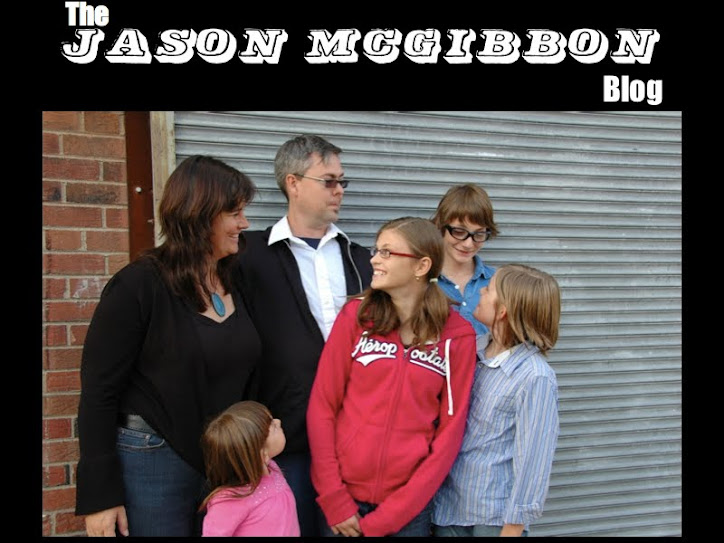I recently did an on camera interview, with a team from North Carolina in which we discussed a little bit about Canada, the context in which we minister, and some unique things about serving in Canada. One thing that I spoke about was language, and what does and does not translate from a more "churched" culture. I mentioned as examples the terms "fundamentalist" and "evangelical." I suggested that should one use the term "fundamentalism" that many might automatically think "extremist" or"terrorist." I also suggested that "evangelical" which many in evangelical circles would obviously see as a very positive word, would likely be considered quite a bad word and bring up very negative connotations. Recently, my wife passed this article on to me, which I think highlights what I am suggesting.
Below is an article that appeared at the site Canada.com. It is an article primarily about Climate Change, and in particular the Prime Minister's response and handling of the issues. I am not going to venture into a discussion about the environmental issues, the Prime Minister's handling of it etc. What I would like to do however, is point out the real skepticism, doubt, mistrust and almost conspiracy theory like treatment with which "evangelical" Christianity is treated. Whether or not I agree with the Prime Minister on environmental issues aside, I find it fascinating how his faith is brought into the discussion. A few things to note to help gain a clearer perspective:
a) The writer of the article is absolutely right when he suggests that in Canada, religion and politics rarely mix. Politicians rarely make bold claims about their faith, and in fact that could very well be the kiss of death.
b) Along with this, as the article indicates, the Prime Minister is very private about many things. He has never made bold, public claims about his faith. In fact, especially if one is reading this from an American perspective where faith and religion seem much more intertwined, there has been so little said by the Prime Minister about the issue one might really wonder about the claim that he is, in fact, an "Evangelical" Christian. I am not saying He is not. I am saying He says very little about the issue.
c) The article indicates that "Because of the guarded privacy of the Prime Minister, Nikiforuk's
evidence is only circumstantial - without any direct links, his
operative word is "believe..." There is no actual evidence.
And yet, even the hint of a connection to an "Evangelical" christian church raises enough doubt and animosity, that the journalist feels almost compelled to see in that the basis for the Prime Minster's terrible record (by some standards) on environmental issues.
The most ironic part however, is that there seems to me some more very obvious reasons to which to trace the Prime Minister's record. Namely, what we know for sure about Steven Harper is that He is an economist, and a conservative economist at that. He is also a Westerner, and the core of the base for His political support is in the West, in provinces where natural resources such as oil drive the economy. It seems one does not need to look much past these points to find the most obvious place to try to explain his positions. Now I am not a political scientist, nor an economist, so this may be too simplistic and naive. At the end of the day, however, an attempt to base all of Steven Harper's politics on an "evangelical" faith seems a bit of a stretch, and goes more to show the mistrust that many Canadians have for "evangelicalism" than anything else.
Here is a link to the article below:
http://www.canada.com/Religion+Factor+Canada+Environmental+Politics/6712311/story.html
Subscribe to:
Post Comments (Atom)





Jay,
ReplyDeleteI've been away from Canada for a decade now but from an outsider's perspective I would suggest that Canada's "mistrust" for evangelicalism has more to do with our erratic (and oft times puzzling) relationship with our neighbors to the south than anything else. Attitudes and opinions on Christian evangelicalism were forged long before Harper assumed office. Again, I'm not sure how things are now, but I remember a Canada with the critical thinking capacity to see the difference between the words evangelical, fundamentalist and extremist. I'd hate to know that that nuanced thinking is endangered.
Thanks for the comment!
ReplyDeleteFor sure Canadians are quite adept at critical thinking and can certainly see the difference between the words evangelical and fundamentalist. I would suggest that since 9/11 especially, the difference between "fundamentalist" (which I don't see as synonymous with evangelical)and terrorist has certainly been blurred, when it comes to common parlance a anyway. With "evangelical" (and maybe I did not communicate it clearly enough, I see this as a different word and issue) there is a very real and widening gap with how that word is understood. Evangelicalism is viewed with a lot of doubt, skepticism and mistrust by many Canadians. For sure that was from before Harper ever took office, and quite likely does have a lot to do with that ever present, erratic and (I like how you put it) puzzling relationship with our neighbours to the south. My point was less to analyze the why and how of the way Canadian's view evangelicalism, but rather to point out the fact to my many friends from different contexts, that the relationship to the word (and the ideas behind the word) might be very different. This would be especially true for someone from many parts of the US.
This comment has been removed by the author.
ReplyDeleteI know your point was to point out the mistrust with which many Canadians approach evangelicalism rather than the specifics of the article but apparently Elizabeth May did have something to say. Interesting follow up...
ReplyDeleteArticle